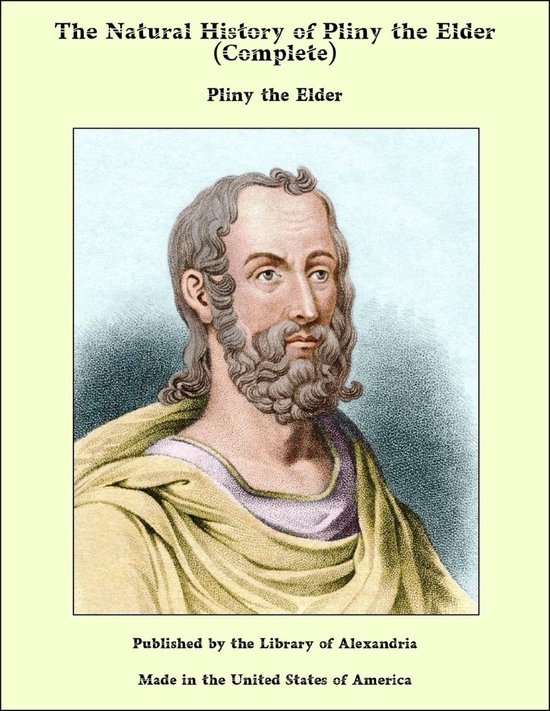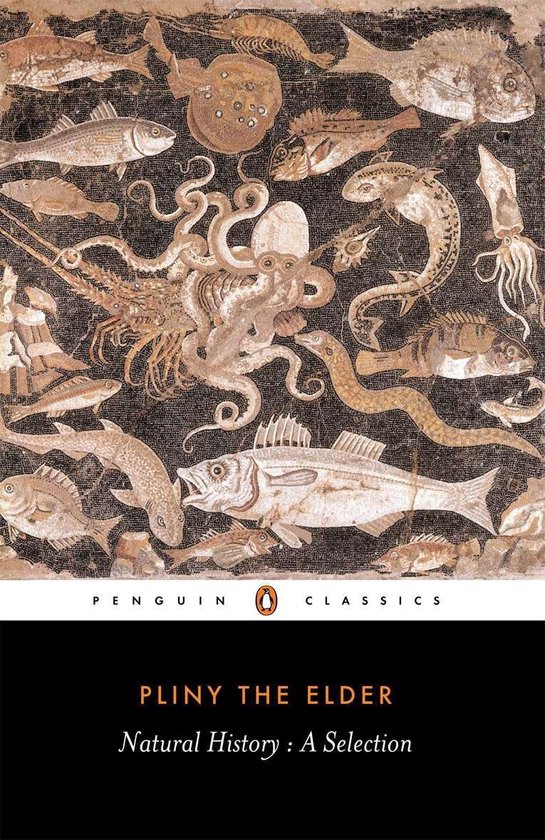
The Natural History of Pliny the Elder (Complete)
Caius Plinius Secundus was born either at Verona or Novum Comum1, now Como, in Cisalpine Gaul, in the yearA.U.C. 776, and A.D. 23. It is supposed that his earlier years were spent in his native province; and that he was still a youth when he removed to Rome, and attended the lectures of the grammarian Apion. It was in about his sixteenth year that he there saw Lollia Paulina, as in the following she was divorced by Caligula, and it was probably in his twentieth that he witnessed the capture of a large fish at Ostia, by Claudius and his attendants, and in his twenty-second that he visited Africa, Egypt, and Greece. In his twenty-third year Pliny served in Germany under the legatus Pomponius Secundus, whose friendship he soon acquired, and was in consequence promoted to the command of an ala, or troop of cavalry. During his military career he wrote a treatise (now lost) “On the Use of the Javelin by Cavalry,” and travelled over that country as far as the shores of the German Ocean, besides visiting Belgic Gaul. In his twenty-ninth year he returned to Rome, and applied himself for a time to forensic pursuits, which however he appears soon to have abandoned. About this time he wrote the life of his friend Pomponius, and an account of the “Wars in Germany,” in twenty books, neither of which are extant. Though employed in writing a continuation of the “Roman History” of Aufidius Bassus, from the time of Tiberius, he judiciously suspended its publication during the reign of Nero, who appointed him his procurator in Nearer Spain, and not improbably honoured him with equestrian rank. It was during his sojourn in Spain that the death of his brother-in-law, C. Cæcilius, left his nephew C. Plinius Cæcilius Secundus (the author of the Letters) an orphan; whom immediately upon his return to Rome, A.D. 70, he adopted, receiving him and his widowed mother under his roof. Having been previously known to Vespasian in the German wars, he was admitted into the number of his most intimate friends, and obtained an appointment at court, the nature of which is not known, but Rezzonico conjectures that it was in connexion with the imperial treasury. Though Pliny was on intimate terms also with Titus, to whom he dedicated his Natural History, there is little ground for the assertion, sometimes made, that he served under him in the Jewish wars. His account of Palestine clearly shows that he had never visited that country. It was at this period that he published his Continuation of the History of Aufidius Bassus. From the titles which he gives to Titus in the dedicatory preface, it is pretty clear that his Natural History was published A.D. 77, two years before his death. In A.D. 73 or 74, he had been appointed by Vespasian præfect of the Roman fleet at Misenum, on the western coast of Italy. It was to this elevation that he owed his romantic death, somewhat similar, it has been remarked, to that of Empedocles, who perished in the crater of Mount Ætna. The closing scene of his active life, simultaneously with the destruction of Herculaneum and Pompeii, cannot be better described than in the language employed by his nephew in an Epistle to his friend Tacitus the historian—“My uncle was at Misenum, where he was in personal command of the fleet. On the ninth day before the calends of September, at about the seventh hour, 1 P.M., my mother, observing the appearance of a cloud of unusual size and shape, mentioned it to him. After reclining in the sun he had taken his cold bath; he had then again lain down and, after a slight repast, applied himself to his studies. Immediately upon hearing this, he called for his shoes, and ascended a spot from which he could more easily observe this remarkable phænomenon.
| Auteur | | Pliny The Elder |
| Taal | | Engels |
| Type | | E-book |
| Categorie | | Literatuur & Romans |





